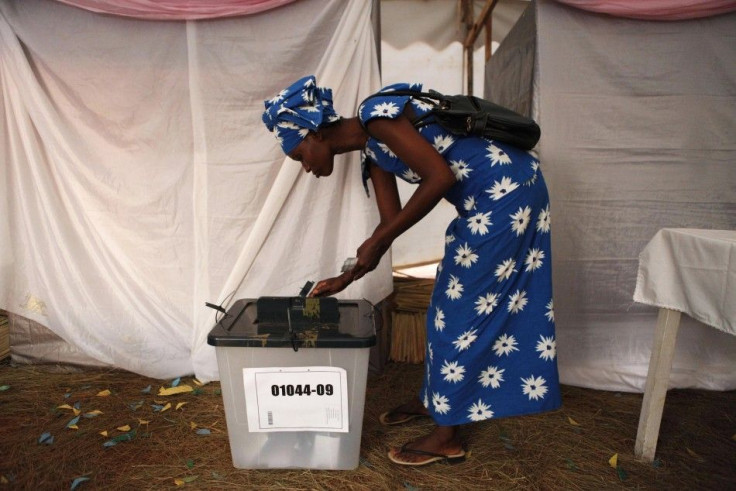Rwanda Votes For Parliament: A Strange Electoral System For A Unique Country

A national parliamentary election began Monday in the East African country of Rwanda, and the ruling Rwandan Patriotic Front, or RPF, is expected to maintain control over the national government. This is no ordinary election. Rwanda's electoral process is unique, as is the East African country of 12 million, an international aid darling whose violent past has given way to dazzling economic growth and development, but whose repressive tendencies are frequently criticized by domestic dissidents and global human rights groups.
Rwanda's parliament is bicameral. The upper house -- the Senate, with 26 seats -- is indirectly elected by various political groups and institutions, while the lower house -- the Chamber of Deputies, with 80 seats -- has 53 members elected by the people, with 27 indirectly elected by special interest groups. Of those 27 seats, 24 are reserved for women, two are for young people and one must be filled by a disabled person.
The 53 people who will be chosen by the electorate this week are not voted for directly by individual constituencies; instead, Rwandans vote at the provincial level for parties, each of which offers up a list of its top candidates. The results give each party a percentage, which in turn determines how many of its candidates are sent to parliament. This system has the benefit of cutting down on divisiveness and personality politics, but it also empowers parties at the expense of individual politicians and their supporters.
The ruling RPF is the party of Rwandan President Paul Kagame; it won 35 out of 53 elected seats in the last parliamentary election, and is allied to smaller parties including the Liberal Party and the Social Democratic Party. The RPF first came to power after fighting to end the 1994 genocide that pitted extremist ethnic Hutus against Tutsis and moderates, killing about 800,000 people. This will be the country's third parliamentary election since that devastating episode.
Polls opened at 7 a.m. on Monday morning, with long lines indicating a high voter turnout. But the vote was overshadowed by a recent act of violence; on Friday and Saturday, two separate grenade explosions killed two people and wounded 22 in the capital city of Kigali. No one has claimed responsibility, but officials suspect the Democratic Forces for the Liberation of Rwanda, or FDLR in French, which has links to the extremist Hutu group that perpetrated the 1994 genocide and is still an active militia in the neighboring Democratic Republic of Congo. The weekend violence might have served as an ominous prelude to the election, hinting at the undercurrent of dissent RPF is keen to suppress.
Of the parties contesting this election, only one -- Social Party Imberakuri -- is considered directly at odds with the RPF. Its chances are slim; the opposition is not expected to make any significant gains in this poll, and its members have alleged harassment by pro-government forces over the past few days, according to the BBC.
Despite these issues, Rwanda's ruling party has plenty to crow about; developmental progress since 1994 has been stunning, with economic growth on track to hit at least 7 percent this year. International assistance has played a major role in this growth; external funding makes up 40 percent of Rwanda's national budget of $2.6 billion this fiscal year.
Kagame himself is a controversial figure: a mild-mannered technocrat who is almost certainly backing militant groups committing human rights abuses in the neighboring DR Congo. He has already been elected twice, and the next presidential election is scheduled for 2017. Despite Kagame's previous assurances that he would not seek a third term -- in line with a constitutional clause limiting presidents to two terms in office -- there are whispers he may take advantage of his widespread support to run again, perhaps by challenging the constitutional rule via referendum.
For now, all eyes are on the Chamber of Deputies balloting, which is expected to result in a vote of confidence for the RPF and the president. Polling will continue through Wednesday, and results are expected by Sept. 20.
© Copyright IBTimes 2025. All rights reserved.





















